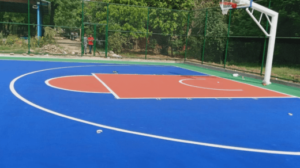Stress-free study strategies can significantly benefit high school students, helping them excel academically while maintaining their mental well-being. Here are 30 key points, including the pros and cons, related to stress-free study strategies for high school students:
Stress-Free Study Strategies for High School Students:
- Time Management: Creating a study schedule helps students allocate sufficient time for each subject and reduce last-minute cramming.
- Prioritization: Focus on the most critical tasks first to avoid feeling overwhelmed.
- Breaks: Taking regular breaks during study sessions can enhance productivity and reduce fatigue.
- Effective Note-Taking: Employing effective note-taking techniques, such as summarizing information, improves understanding.
- Healthy Environment: Create a conducive study environment free from distractions.
- Regular Exercise: Physical activity boosts mental well-being and concentration.
- Mindfulness and Meditation: These practices reduce stress and improve focus.
- Good Sleep: A regular sleep schedule enhances cognitive functioning.
- Organized Study Materials: Well-organized notes and study materials make review easier.
- Peer Study Groups: Collaborative learning helps break monotony and gain diverse perspectives.
- Practice Tests: Self-assessment through practice tests helps identify areas of improvement.
- Positive Self-Talk: Encourage yourself with positive affirmations and maintain a growth mindset.
- Healthy Diet: Nutrient-rich food supports cognitive function and energy levels.
- Time for Hobbies: Pursuing hobbies and interests provides a healthy distraction.
- Seeking Help: Don’t hesitate to ask teachers or peers for clarification on challenging topics.
- Limiting Screen Time: Reducing excessive screen time can aid relaxation.
- Stress Management Techniques: Learn and practice techniques to manage stress, such as deep breathing.
- Social Support: Share concerns with friends and family to gain emotional support.
- Set Realistic Goals: Establish achievable academic goals to prevent burnout.
- Mind Mapping: Use visual aids like mind maps to organize information.
- Reward System: Reward yourself for achieving milestones or completing tasks.
- Digital Detox: Periodically disconnect from digital devices to recharge.
- Study Apps: Use educational apps to make learning more interactive.
- Continuous Review: Regularly revisit previous material to reinforce memory.
- Online Resources: Utilize online resources like Khan Academy and Coursera for additional learning.
- Learning Styles: Identify your learning style (visual, auditory, kinesthetic) to study more effectively.
- Study Breaks: Plan regular study breaks to prevent mental fatigue.
- Time Blocks: Divide study time into focused blocks with specific goals.
- Daily Planners: Use planners to stay organized and manage time effectively.
- Positive Role Models: Look up to individuals who have successfully managed stress and academic pressures.
Pros of Stress-Free Study Strategies:
- Improved Learning: Stress-free strategies promote better retention and understanding of material.
- Mental Well-being: Reducing stress contributes to improved mental health.
- Consistency: Stress-free techniques encourage consistent study habits.
- Effective Time Management: Students can optimize their time and prioritize their tasks effectively.
- Enhanced Focus: Stress-free study techniques improve concentration and attention.
Cons of Stress-Free Study Strategies:
- Individual Variation: What works for one student may not be suitable for another.
- Initial Adjustment: Implementing new strategies may require time and effort to adapt.
- Over-Relaxation: Excessive relaxation can lead to procrastination or reduced productivity.
- Resource Availability: Not all students may have access to the same resources or support systems.
- Balancing Act: Striking a balance between relaxation and study can be challenging.
Stress-free study strategies promote healthy learning habits and emotional well-being. While the adjustment may require time and effort, the benefits in terms of learning outcomes and stress reduction make these strategies invaluable for high school students.































+ There are no comments
Add yours